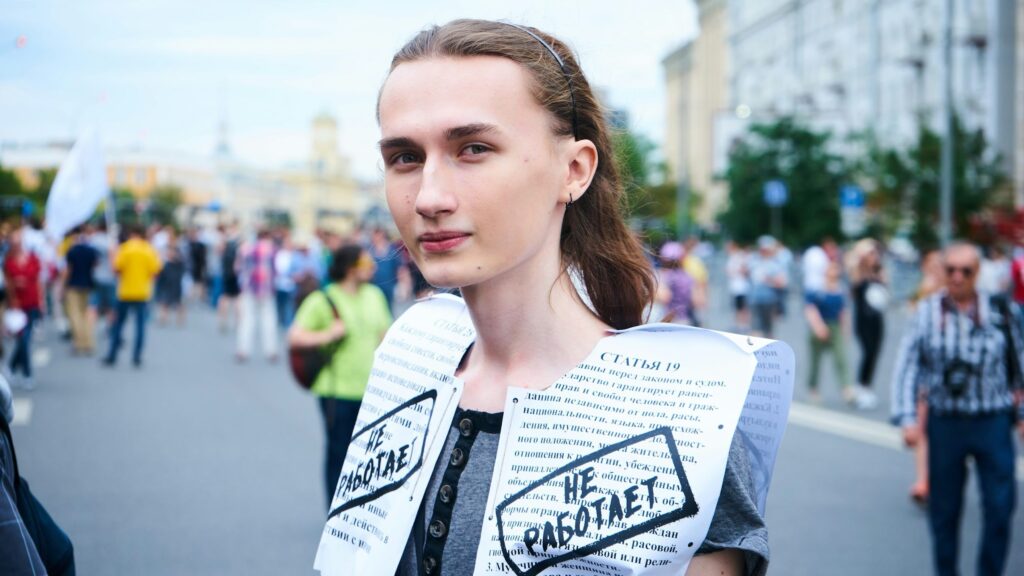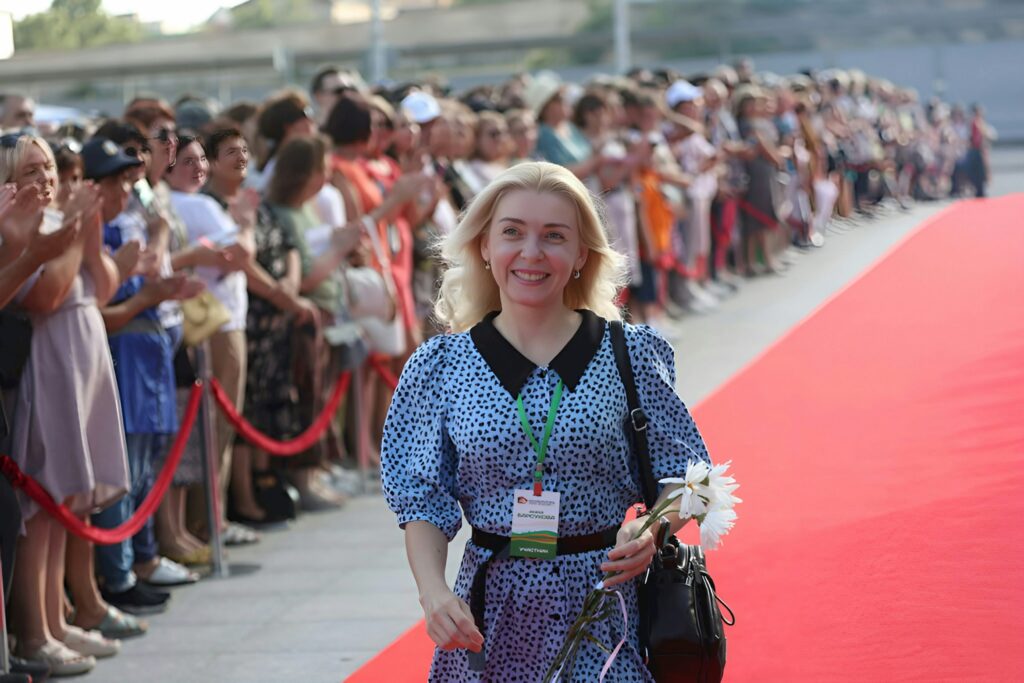
Best Way to Find a Ukrainian Wife
29.10.2025Do Women Have Rights in Russia?
Women’s rights in Russia remain in a fragile and often dangerous state, a topic that shouldn’t have to be answered in the twenty-first century. The reality that many Russian women endure is molded by a long history of discrimination, outdated gender stereotypes, and expanding governmental control, notwithstanding official legal protections. Women in Russia face a number of challenges in both their personal and professional lives, from domestic abuse to job discrimination.
In order to stay safe, be open, and have their relationships validated, more and more Russian women are turning to programs like Verified Love or seeking help abroad. This article explores the current legal, cultural, and political state of women’s rights in Russia.
Table of Contents
Russia and Women’s Rights: What the Law Says
On paper, the Russian Federation guarantees gender equality. The Russian Constitution’s Article 19 states that “men and women shall have equal rights and freedoms and equal opportunities to exercise them.” The international human rights treaties that Russia has ratified, such as CEDAW (the Convention on the Elimination of All Forms of Discrimination Against Women), should further protect women’s rights.
However, in practice, women’s rights are not always respected in Russia. Many laws aren’t really protective; they’re just formalities. First-time domestic abuse that does not result in “serious bodily harm” was decriminalized by the Russian government in 2017, but efforts to put in place a comprehensive framework to address domestic violence have repeatedly failed. That decision sparked outrage among feminist groups, human rights advocates, and civil society, but was in line with the state’s broader trend toward “traditional values.”
The Impact of Traditionalism and Patriarchy
Russian society has long been shaped by patriarchal norms that place women in subordinate roles. The Soviet Union gave women official access to education and equality in the workplace, but these advantages came with a “double burden” that persists in post-Soviet Russia: a full-time job and full-time childcare.
The Russian Orthodox Church, an increasingly powerful political force in Russia, has pushed for further limitations on women’s reproductive rights, including bans on abortion. In light of Russia’s dwindling population, government officials say that women’s primary duty is to bear children.
Statements by people like Health Minister Murashko, who criticized women for prioritizing their education and careers over having children, reflect a broader governmental narrative that women’s equality is subservient to child-rearing and family maintenance. In several respects, contemporary Russia appears to be reverting to gender norms from the Soviet era, albeit without the maternity benefits and job protections that Soviet women formerly enjoyed.
Gender-Based Violence and the Absence of Protection
Perhaps the most urgent issue facing women in Russia today is the lack of legal and social protection from gender-based violence. According to official statistics, at least 12,000 women die annually from domestic violence in Russia — a number widely believed to be underreported.
Sexual harassment, sexual abuse, and physical violence are rarely prosecuted. Women often have no safe channels to report crimes, especially in rural or conservative Russian regions. Even in major cities like Moscow or St. Petersburg, survivors are frequently told by police to “work it out” with their abusers.
The situation worsened after the Russian invasion of Ukraine in 2022. With men returning from the front lines suffering from PTSD and psychological trauma, rates of domestic violence cases have increased. Human Rights Watch and Russian feminist movements have documented dozens of cases of returning soldiers assaulting women. In many instances, perpetrators face no consequences, and women are left to navigate the legal system alone.
Economic and Political Disparities
Employment discrimination remains another major barrier to women’s equality in Russia. Women are underrepresented in political positions and leadership roles across sectors. While female legislators exist, they are few, and often discouraged from promoting women’s issues for fear of being labeled as “feminist” or “foreign agents.”
The labor market also reflects deep inequalities. Many professions remain closed to women — especially in Russian culture, where “protecting women” is cited as a reason to bar them from jobs in heavy industry, transportation, and other “male” fields. Paid maternity leave exists in theory but is not well enforced, and reproductive health access is increasingly politicized.
As a result, many Russian women — particularly young women in urban areas — are seeking other options. Some leave the country entirely. Others turn to international platforms and relationship verification services to seek greater security in personal connections.
Why Women Use Verified Love and Similar Services
Against this backdrop, platforms like Verified Love provide women with tools they cannot access through state systems. Russian passport verification, a vital step in verifying the identity of someone they’re corresponding with online, is one of the most desired features. In an environment of distrust, deception, and abuses of human rights, both men and women are searching for more trustworthy means of establishing international connections.
Verified Love offers document verification, conversation analysis, and scam detection tools to ensure that a person’s story matches their documentation. This has become especially important as russian media and official statistics become harder to trust, and as civil society faces growing pressure from state surveillance.
Women’s Activism and the Fight for Rights
Despite these obstacles, women’s activism in Russia has not stopped. Courageous groups and individuals continue to protest sexual violence, demand better laws, and document human rights violations. These efforts come with serious risks. Many feminist groups have been labeled as foreign agents, and some activists — like Yulia Tsvetkova and others — have been arrested or harassed for their work.
Yet the feminist movement continues to grow. From urban population centers to smaller regions, women are organizing, speaking out, and building networks. In some cities, women-only co-working spaces and shelters offer brief respite from the pressures of everyday russian society. Social media has also become a powerful tool — allowing russian women to share their stories, support each other, and reach global audiences.
Looking Ahead: A Need for Real Reform
The question “Do women have rights in Russia?” remains complex. Russian law says yes — but the lived experiences of millions of women in Russia say otherwise. Until the government acknowledges gender inequality, enacts real protections against sexual assault, improves maternity leave conditions, and moves beyond traditional values as a political tool, progress will be limited.
Still, many women are not waiting for permission to demand better. Whether through grassroots political activism, partnerships with international organizations, or using services like Verified Love to protect their personal and emotional well-being, women in Russia are finding ways to survive — and, sometimes, to thrive.
Final Thoughts
Russian women’s rights are not a relic of the soviet government — they’re a fight of today. And it’s a fight that touches on every level of russian culture: from reproductive rights and the labor laws that exclude women, to the violence that too many endure behind closed doors. As more women speak up, the world needs to listen — and stand in solidarity with their efforts.
If you’re looking to build a relationship across borders, verify someone’s identity, or protect yourself from fraud, platforms like Verified Love offer services that support not just your safety, but your dignity because everyone — regardless of country — deserves honesty, respect, and equality.








